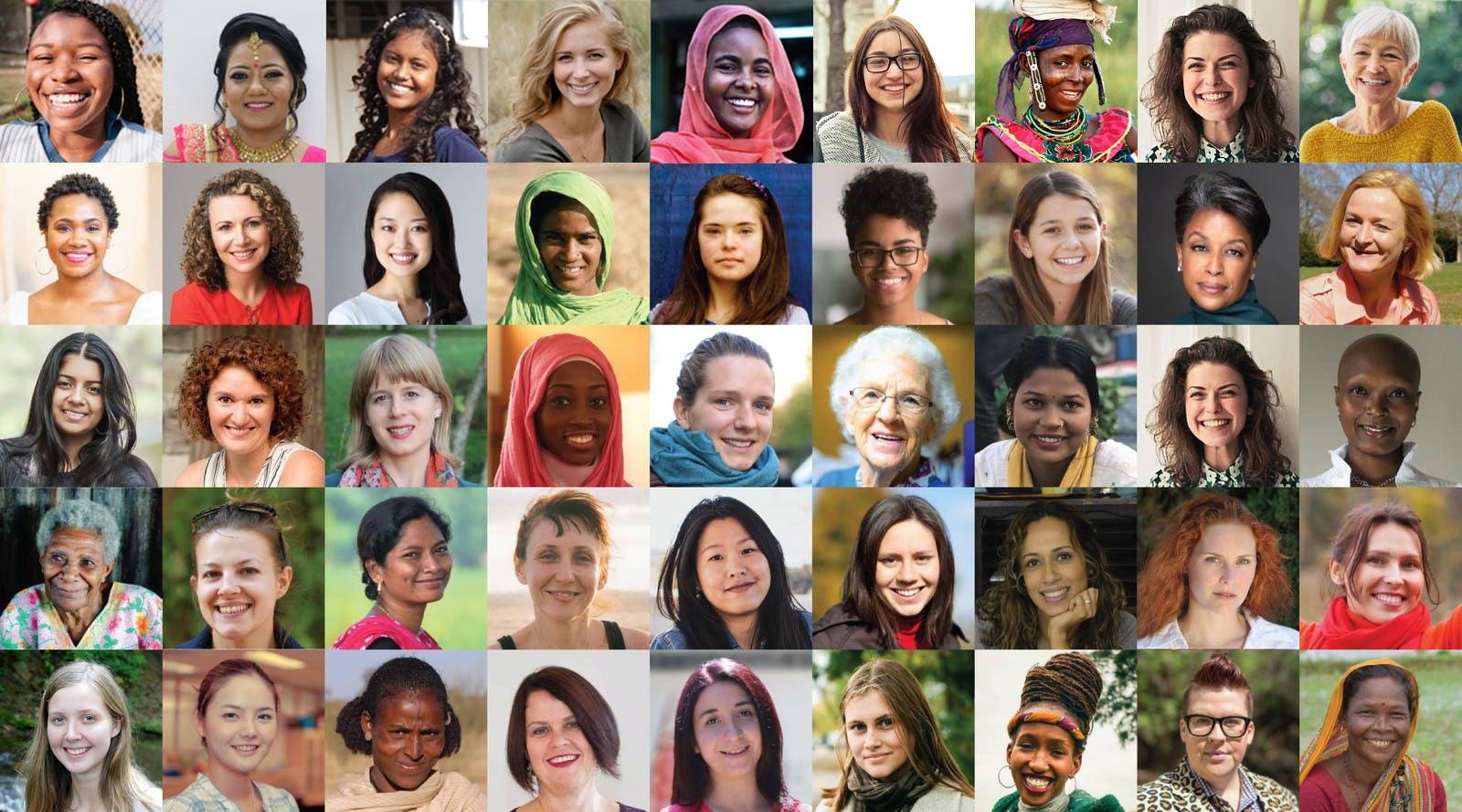Below is a selection of environmentally-themed books written by Daughters around the world who are fighting for a more just and sustainable planet. This recommended book list by the Daughters for Earth team is sure to inspire and empower.

Daughters for Earth Book List

Rebel Girls Climate Warriors: 25 Tales of Women Who Protect the Earth
Get bookThis paperback collection features conservationists, activists, water protectors, philanthropists, authors, and other women from around the world who have stood up to polluters and used their amazing talents to protect the planet. Readers will join the global climate movement with Greta Thunberg. They’ll study finches and owls with Mya-Rose Craig. And they’ll camp out in the branches of a majestic redwood tree with Julia Butterfly Hill. Rebel Girls Climate Warriors celebrates the dedication of planet protectors and gives readers a wide variety of ideas for how they might join the fight. The exciting stories are paired with bold, full-page portraits created by female and nonbinary artists from around the world. Additionally, Daughters for Earth Co-founder Zainab Salbi provides girls with four easy actions they can take to live green.

Walking With Gorillas: The Journey of an African Wildlife Vet
Get bookIn her captivating memoir, Dr. Gladys Kalema-Zikusoka, Uganda's first wildlife veterinarian, shares her extraordinary journey from a childhood filled with love for animals to her groundbreaking career in protecting endangered mountain gorillas and other wildlife species. This inspiring narrative encompasses her early years as a student in Uganda, enduring personal tragedies during a military coup, her pursuit of veterinary education in England, and her establishment of Uganda's first veterinary department. Dr. Gladys's unwavering dedication led her to found one of the world's pioneering organizations, which fosters coexistence between humans and wildlife through improved health and well-being for both. Through her innovative methods, she successfully mitigated the impact of the COVID-19 pandemic on critically endangered mountain gorillas. This memoir is a testament to Dr. Gladys's resilience, passion, and determination in a world riddled with discrimination and male dominance. Her story serves as an inspiration, shedding light on the potential of collaborative efforts to create a brighter future for our planet, where wildlife and human communities thrive hand in hand.
Rooted How regenerative farming can change the world
Get bookWhen barrister and author Sarah Langford left her city life behind she found herself unexpectedly back in the world of farming. It was not how she remembered. Instead, she saw farmers dealing with very different problems to those faced by her grandfather, considered a hero for having fed a starving nation after war. Now farmers faced accusations of ecological mismanagement by a hostile urban media whilst battling extreme weather and political upheaval. Yet as Sarah learned how to farm and grew closer to the land, she discovered a new generation on a path of regenerative change. In Rooted, Sarah weaves her own story around those who taught her what it means to be a farmer. She shines a light on the human side of modern farming, and shows how land connects us all, not only in terms of global sustainability but in our relationships with our physical and mental health, our communities and our planet.

The Intersectional Environmentalist
Get bookThe Intersectional Environmentalist is an introduction to the intersection between environmentalism, racism, and privilege, and an acknowledgment of the fundamental truth that we cannot save the planet without uplifting the voices of its people — especially those most often unheard. Written by Leah Thomas, a prominent voice in the field and the activist who coined the term "Intersectional Environmentalism," this book is simultaneously a call to action, a guide to instigating change for all, and a pledge to work towards the empowerment of all people and the betterment of the planet. This author and Daughter is also a part of the Daughters for Earth Advisory Circle.
Fresh Banana Leaves: Healing Indigenous Landscapes Through Indigenous Science
Get bookDespite the undeniable fact that Indigenous communities are among the most affected by climate devastation, Indigenous wisdom and science are nowhere to be found in mainstream environmental policy. In Fresh Banana Leaves, author Jessica Hernandez, Maya Ch’orti’, Zapotec environmental scientist, and founder of environmental agency Piña Soul, introduces Indigenous environmental knowledge and creates a vision of land stewardship that heals rather than destroys. Through case studies, historical overviews, and stories that center on the voices and lived experiences of Indigenous Latin American women, Hernandez makes the case that if the health of our planet is to be recovered, our relationship with Earth must be restored to one of harmony and respect.

Nature, Culture, and the Sacred: A Woman Listens for Leadership
Get bookNature, Culture, and the Sacred offers practical guidance and inspiration for anyone who aspires to grow into their own unique form of leadership on behalf of positive change. Join Nina on an inspiring journey to shed self-limiting beliefs, lead from the heart and discover beloved community as you cultivate your own flourishing and liberation. Inspired and informed by Indigenous wisdom keepers who are leading the way towards a regenerative future, she invites women and people of all genders to, as Joanna Macy suggests, “see with new and ancient eyes.”

The Book Of Hope: A Survival Guide for Trying Times
Get bookIn this urgent book, Jane Goodall, the world's most famous living naturalist, and Douglas Abrams, the internationally bestselling co-author of The Book of Joy, explore through intimate and thought-provoking dialogue one of the most sought after and least understood elements of human nature: hope. In The Book of Hope, Jane focuses on her "Four Reasons for Hope": The Amazing Human Intellect, The Resilience of Nature, The Power of Young People, and The Indomitable Human Spirit.

The Garden Awakening: Designs to Nurture Our Land and Ourselves
Get bookAuthor Mary Reynolds demonstrates how to create a groundbreaking garden that is not simply a solitary space but an expanding, living, interconnected ecosystem. Drawing on old Irish ways and methods of working with the land, this beautiful book is both art and inspiration for any garden lover seeking to create a positive, natural space.

Braiding Sweetgrass: Indigenous Wisdom, Scientific Knowledge and the Teachings of Plants
Get bookAs a botanist, Robin Wall Kimmerer has been trained to ask questions of nature with the tools of science. As a member of the Citizen Potawatomi Nation, she embraces the notion that plants and animals are our oldest teachers. In Braiding Sweetgrass, Kimmerer brings these two lenses of knowledge together. In reflections that range from the creation of Turtle Island to the forces that threaten its flourishing today, she circles toward a central argument: that the awakening of ecological consciousness requires the acknowledgment and celebration of our reciprocal relationship with the rest of the living world.

Finding the Mother Tree
Get bookSuzanne Simard, a pioneer on the frontier of plant communication and intelligence, brings us into her world, the intimate world of the trees, in which she brilliantly illuminates the fascinating and vital truths--that trees are not simply the source of timber or pulp, but are a complicated, interdependent circle of life; that forests are social, cooperative creatures connected through underground networks by which trees communicate their vitality and vulnerabilities with communal lives not that different from our own.

Healing Grounds: Climate, Justice, and the Deep Roots of Regenerative Farming
Get bookAs we confront the grim realities of climate change, regenerative agriculture has arisen as a promising solution. In Healing Grounds: Climate, Justice, and the Deep Roots of Regenerative Farming, author Liz Carlisle shows that carbon can actually be stored in the soil if we adopt ancestral land management strategies, many of which are held by communities of color. The cultures that Carlisle writes about in this book—Indigenous, Black, Latino, Hmong—are still connected to their deep farming histories and they’re using unique regenerative practices that not only enrich the soil but banish pests, reduce erosion, and increase yields. Carlisle believes contemporary farmers from all backgrounds have a lot to learn from these traditions.

Abundance Nature in Recovery
Get bookIn this new collection of literary essays, Karen Lloyd explores abundance and loss in the natural world by relating compelling stories of restoration, renewal, and rewilding and revealing how the people working on the front line of conservation are challenging the inevitability of biodiversity loss.

Farming While Black
Get bookSome of our most cherished sustainable farming practices have roots in African wisdom. Yet, discrimination and violence against African-American farmers have led to their decline from 14 percent of all growers in 1920 to less than 2 percent today, with a corresponding loss of over 14 million acres of land. Further, Black communities suffer disproportionately from illnesses related to a lack of access to fresh food and healthy natural ecosystems. Soul Fire Farm, cofounded by author, activist, and farmer Leah Penniman, is committed to ending racism and injustice in our food system. Through innovative programs such as the Black-Latinx Farmers Immersion, a sliding-scale farmshare CSA, and Youth Food Justice leadership training, Penniman is part of a global network of farmers working to increase farmland stewardship by people of color, restore Afro-indigenous farming practices, and end food apartheid.

The World Is Blue: How Our Fate and the Ocean's Are One
Get bookThrough compelling personal stories, Dr. Sylvia Earle puts the current and future peril of the ocean and the life it supports in perspective for a wide public audience. As a National Geographic Explorer-in-Residence, Earle ties in an ambitious five-year ocean initiative through National Geographic, focusing on overfishing. This author and Daughter is also a part of the Daughters for Earth Advisory Circle.

All We Can Save: Truth, Courage, and Solutions for the Climate Crisis
Get bookAll We Can Save illuminates the expertise and insights of dozens of diverse women leading on climate in the United States—scientists, journalists, farmers, lawyers, teachers, activists, innovators, wonks, and designers, across generations, geographies, and race—and aims to advance a more representative, nuanced, and solution-oriented public conversation on the climate crisis. These women offer a spectrum of ideas and insights for how we can rapidly, radically reshape society.


